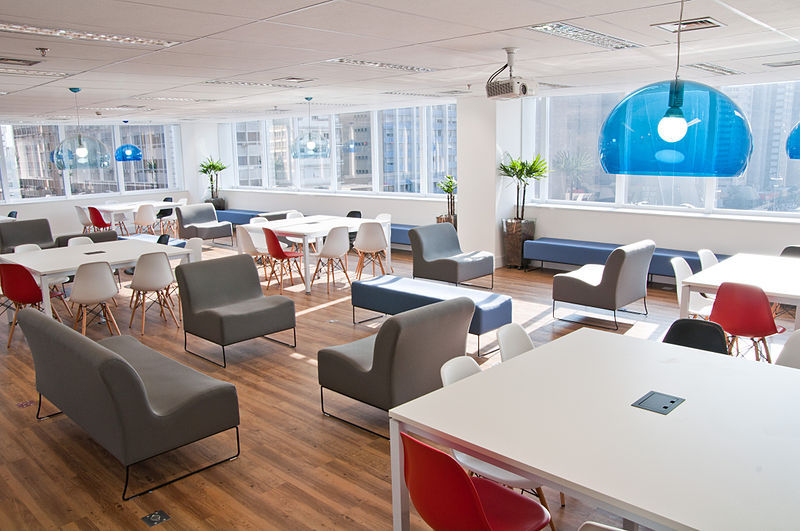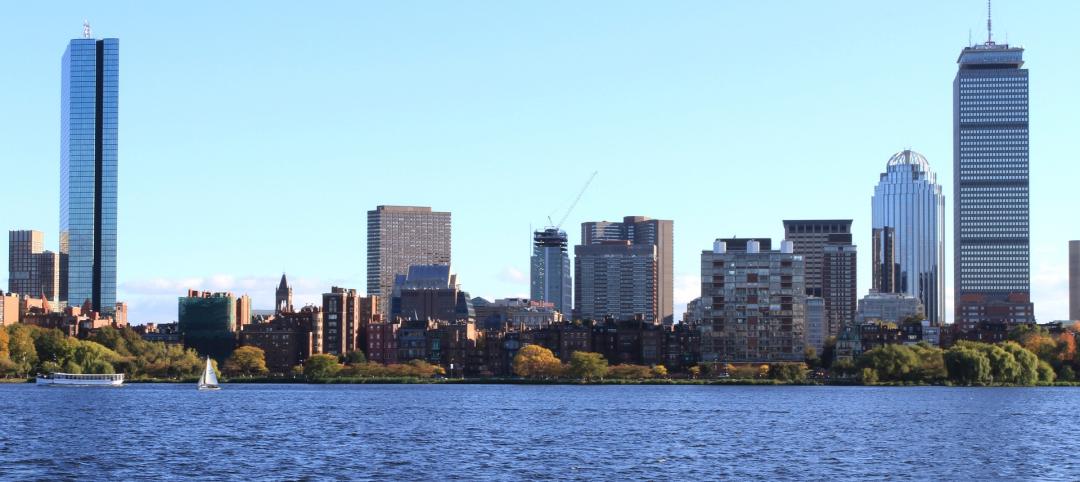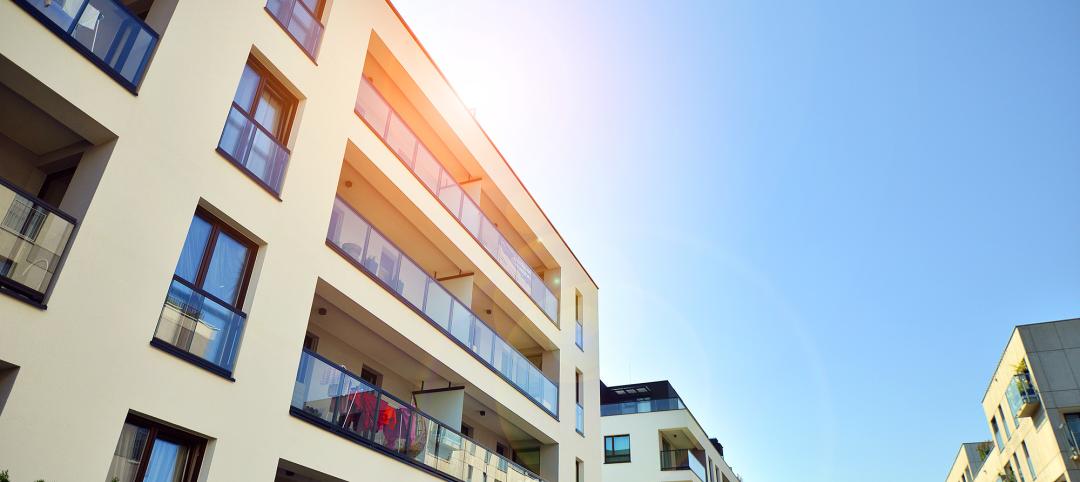Six years after WeWork took the office market by storm with its breakthrough co-working real estate concept, the New York-based startup set its eyes on the next big opportunity for its communal real estate business model: co-living.
WeLive launched early last year with locations in Lower Manhattan and Arlington, Va., and the company has plans to expand to as many as 14 cities in the coming years.
WeLive turns the traditional multifamily rental model on its head. Gone is the long-term lease agreement; Tenants are “members” who can stay month to month, even day to day. Eventually, as the WeLive network expands, members will be able to move freely city to city, as needed, at no additional cost.
From a practicality standpoint, co-living makes complete sense for young, single, and highly mobile working professionals. The spaces are well designed, fully furnished, filled with attractive amenities, and come complete with all the niceties of modern living: towels and linens, housekeeping services, HDTVs, premium cable, high-speed WiFi, concierge staff, even free refreshments like tea, coffee, and fruit water. Think apartment complex meets hotel—but with a crucial twist.
The secret sauce, according to WeWork, is the “We” in WeLive: spaces and programs designed to foster a strong sense of community and connection with other members. Each location has a full-time community concierge team, which organizes events like movie nights, cocktail hours, and formal and informal meals in a communal kitchen. The mailroom and laundry room double as bars and event spaces, and amenities like a rooftop deck and a hot tub encourage tenants to meet and mingle.
WeWork has no shortage of competitors in the co-living market space. Common, HubHaus, Krash, Node, Open Door, Pure House, and Roam Co-living are among the dozen or so startups that are aiming to profit from the mainstreaming of the “hacker house,” commune, or boarding house dwelling models. Investors have taken notice, and have pumped millions into these fledgling businesses. (Common, for instance, has raised more than $23 million from multiple investors since its founding in 2015. With this funding, the startup has opened 13 developments across four metros: Chicago, New York, San Francisco area, and Washington, D.C.)
While it’s too early to claim any of these budding businesses as a resounding success, the co-living craze is the latest example of the startup world looking to shake up the slow-to-evolve, $228 trillion (yes, trillion! tinyurl.com/REworth) global real estate market. Whether it’s Google, WeWork, or Airbnb—or countless other startups and tech firms—it is clear that investors see colossal dollar signs tied to disrupting the tried-and-true real estate and construction markets.
Will your firm join them?
Related Stories
Mixed-Use | Oct 7, 2024
New mixed-use tower by Studio Gang completes first phase of San Francisco waterfront redevelopment
Construction was recently completed on Verde, a new mixed-use tower along the San Francisco waterfront, marking the end of the first phase of the Mission Rock development. Verde is the fourth and final building of phase one of the 28-acre project that will be constructed in several phases guided by design principles developed by a design cohort led by Studio Gang.
MFPRO+ News | Sep 24, 2024
Major Massachusetts housing law aims to build or save 65,000 multifamily and single-family homes
Massachusetts Gov. Maura Healey recently signed far-reaching legislation to boost housing production and address the high cost of housing in the Bay State. The Affordable Homes Act aims to build or save 65,000 homes through $5.1 billion in spending and 49 policy initiatives.
MFPRO+ News | Sep 23, 2024
Minnesota bans cannabis smoking and vaping in multifamily housing units
Minnesota recently enacted a first-in-the-nation statewide ban on smoking and vaping cannabis in multifamily properties including in individual living units. The law has an exemption for those using marijuana for medical purposes.
The Changing Built Environment | Sep 23, 2024
Half-century real estate data shows top cities for multifamily housing, self-storage, and more
Research platform StorageCafe has conducted an analysis of U.S. real estate activity from 1980 to 2023, focusing on six major sectors: single-family, multifamily, industrial, office, retail, and self-storage.
Mixed-Use | Sep 19, 2024
A Toronto development will transform a 32-acre shopping center site into a mixed-use urban neighborhood
Toronto developers Mattamy Homes and QuadReal Property Group have launched The Clove, the first phase in the Cloverdale, a $6 billion multi-tower development. The project will transform Cloverdale Mall, a 32-acre shopping center in Toronto, into a mixed-use urban neighborhood.
Codes and Standards | Sep 17, 2024
New California building code encourages, but does not mandate heat pumps
New California homes are more likely to have all-electric appliances starting in 2026 after the state’s energy regulators approved new state building standards. The new building code will encourage installation of heat pumps without actually banning gas heating.
Adaptive Reuse | Sep 12, 2024
White paper on office-to-residential conversions released by IAPMO
IAPMO has published a new white paper titled “Adaptive Reuse: Converting Offices to Multi-Residential Family,” a comprehensive analysis of addressing housing shortages through the conversion of office spaces into residential units.
MFPRO+ Research | Sep 11, 2024
Multifamily rents fall for first time in 6 months
Ending its six-month streak of growth, the average advertised multifamily rent fell by $1 in August 2024 to $1,741.
Legislation | Sep 9, 2024
Efforts to encourage more housing projects on California coast stall
A movement to encourage more housing projects along the California coast has stalled out in the California legislature. Earlier this year, lawmakers, with the backing of some housing activists, introduced a series of bills aimed at making it easier to build apartments and accessory dwelling units along California’s highly regulated coast.
MFPRO+ New Projects | Sep 5, 2024
Chicago's Coppia luxury multifamily high-rise features geometric figures on the façade
Coppia, a new high-rise luxury multifamily property in Chicago, features a distinctive façade with geometric features and resort-style amenities. The 19-story, 315,000-sf building has more than 24,000 sf of amenity space designed to extend resident’s living spaces. These areas offer places to work, socialize, exercise, and unwind.

















